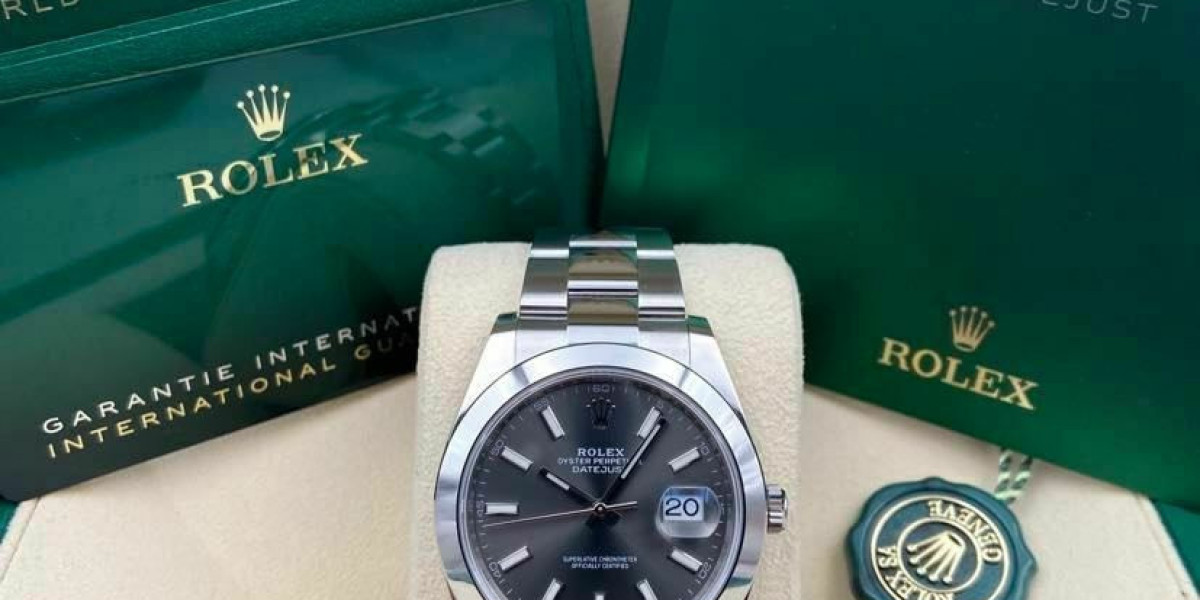Rolex watches are known for their luxury, craftsmanship, and excessive worth point. Nevertheless, there is a profitable market for Rolex replicas – watches that imitate the design and look of authentic Rolex timepieces but are offered at a fraction of the price. But is it authorized to sell Rolex replicas?
The answer to this query will not be as easy as it may seem. Rolex, like many luxurious brands, fiercely protects its intellectual property and trademarks. The company has a team of attorneys devoted to monitoring and implementing its intellectual property rights, together with its trademarked model name, logo, and design components. Selling counterfeit Rolex watches that bear the Rolex emblem or carefully resemble authentic Rolex watches is illegal and can result in legal consequences.
Within the United States, promoting replica watches that infringe on the trademarks of a brand like Rolex is considered trademark infringement. This can be a violation of the Lanham Act, which governs trademarks and unfair competition in the U.S. Promoting counterfeit Rolex watches may end up in civil lawsuits from the trademark proprietor, in addition to criminal prices for trademark counterfeiting. The penalties for trademark infringement can embody hefty fines, seizure of counterfeit items, and even imprisonment in severe circumstances.
Along with trademark infringement, selling Rolex replicas can even violate other laws associated to intellectual property. For example, selling watches with designs that closely mimic Rolex's patented applied sciences or commerce gown can lead to a patent or trade dress infringement declare. Patents protect inventions or technical innovations, and commerce gown protects the general appearance of a product. If a Rolex replica makes use of patented applied sciences or commerce gown with out authorization, the vendor might face legal motion from Rolex.
Regardless of the authorized risks, the marketplace for Rolex replicas continues to thrive, fueled by client demand for luxury goods at reasonably priced prices. Some sellers of replica watches attempt to bypass the law by utilizing disclaimers or labels that indicate the watches are usually not authentic Rolex products. These disclaimers could state that the watches are "homage" or "inspired by" Rolex, quite than claiming to be genuine Rolex watches.
Nevertheless, utilizing disclaimers or labels to keep away from authorized consequences may not at all times be efficient. Courts have dominated that disclaimers or labels which can be deceptive or deceptive to consumers don't shield sellers from liability for trademark infringement. If a shopper is likely to be confused or misled into believing that a replica watch is an genuine Rolex product, the seller may still be held liable for trademark infringement.
In some cases, sellers of Rolex replicas may additionally face authorized motion from online platforms or marketplaces where they list their products. Online platforms like eBay, Amazon, and Alibaba have policies prohibiting the sale of counterfeit items and should suspend or terminate the accounts of sellers who infringe on trademarks. These platforms have methods in place to detect and remove counterfeit listings, and they may cooperate with trademark owners to implement their intellectual property rights.
In conclusion, promoting Rolex replicas is a dangerous enterprise that can lead to authorized consequences. While some sellers could attempt to keep away from liability through the use of disclaimers or labels, these efforts might not always be successful. Trademark infringement, patent infringement, and commerce dress infringement are all potential authorized dangers for sellers of Rolex replicas. Because the marketplace for counterfeit goods continues to evolve, it is important for sellers to concentrate on the legal implications of promoting cartier replica watch watches and to comply with mental property laws to avoid legal hassle.








